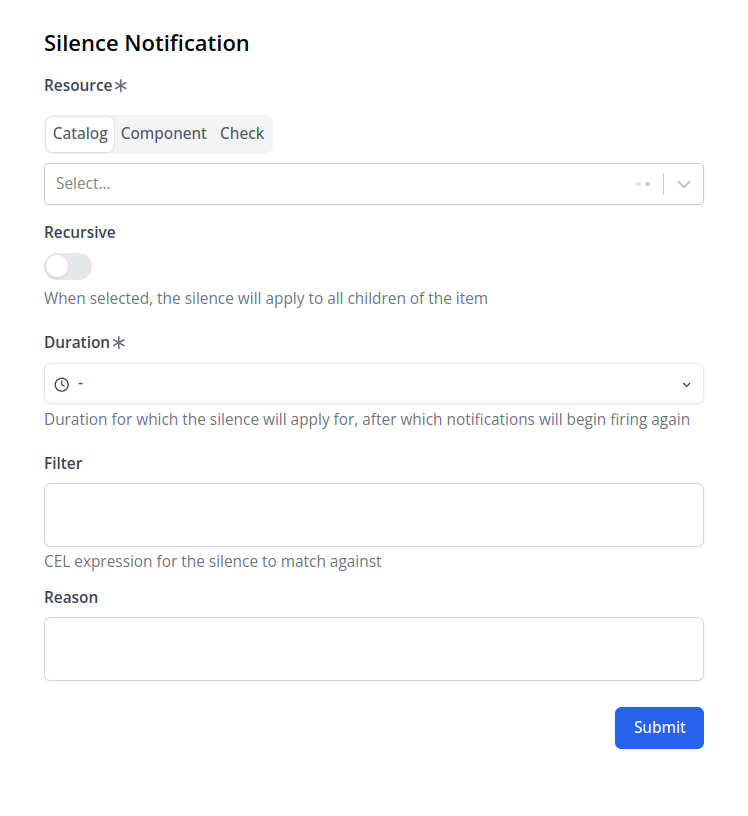Silences
A silence is a way to temporarily suppress notifications. Each silence has:
- A set duration - like an expiration timer
- A scope - it can be applied to either:
- Individual resources (a specific catalog, health check, or component)
- Multiple matching resources using filters
note
Notifications that aren't sent due to silence are still visible in the notification history for auditing purposes.
Use cases
- Planned maintenance or deployments. Eg: You can silence a namespace or a helm release and automatically silence notifications from all their children.
- Non-critical resources: Notifications from resources that routinely trigger alerts but are expected and harmless can be silenced.
- Known issues: If there's a known issue that can't be immediately resolved (e.g., due to dependencies or resource constraints), you might silence related alerts until a fix can be implemented.
Add Silence
Silences can be added from the notification page. Alternatively, if you're using the default slack notification templates, you get a silence button on each notification.

Filters
A silence can optionally contain a filter. A filter is a cel-expression that results in a boolean value. If a filter return true, the notification is silenced.
Examples
| Filter | description |
|---|---|
check.type == 'http' | silences only HTTP check related notifications. |
regexp.Match("^check-[0-9]+", check.name) | matches any check with the prefix check- |
config.name == "postgresql" && config.type == "Kubernetes::StatefulSet" | silences notifications from a stateful set named "postgresql" |
config.type == "Kubernetes::Pod" && catalog.traverse(config.id, "Kubernetes::Namespace", "incoming").size > 0 && catalog.traverse(config.id, "Kubernetes::Namespace", "incoming")[0].tags.?env.orValue("") == "prod" | matches kubernetes pod in a prod namespace |
Template variables
Recursive mode
When a silence is recursively applied, it applies to its all children. So silencing a namespace would silence all deployments, statefulsets, pods, etc in that namespace.